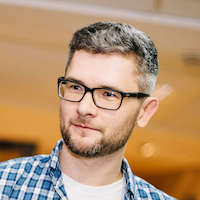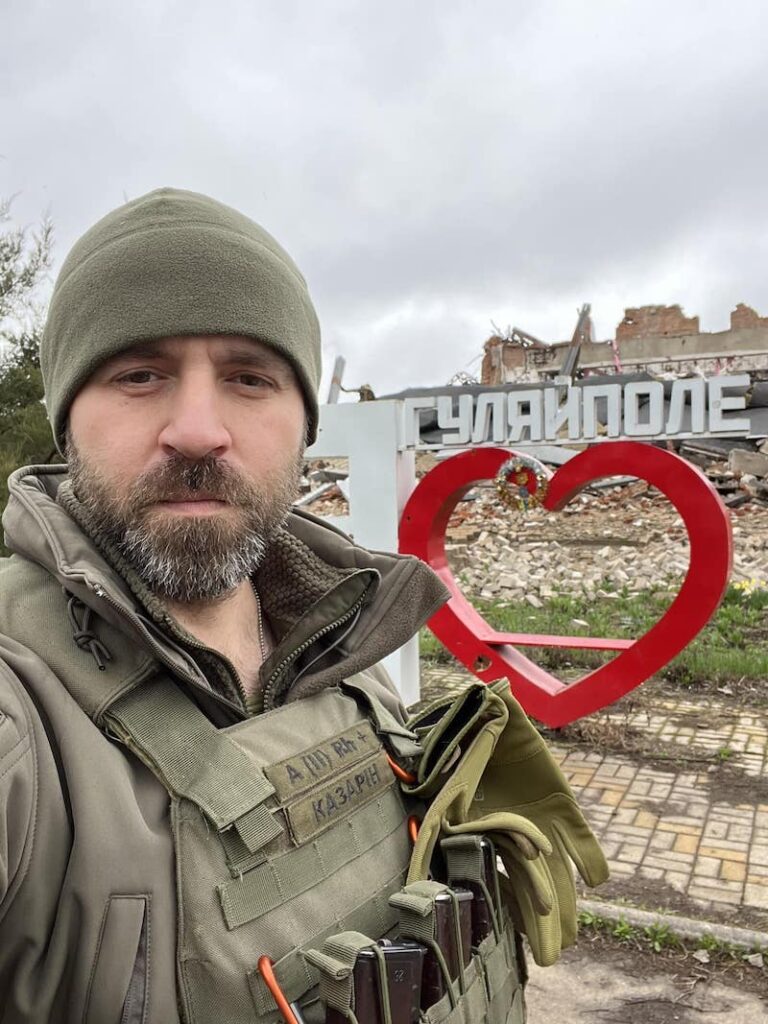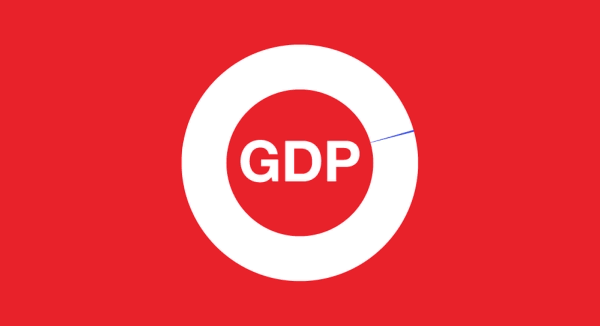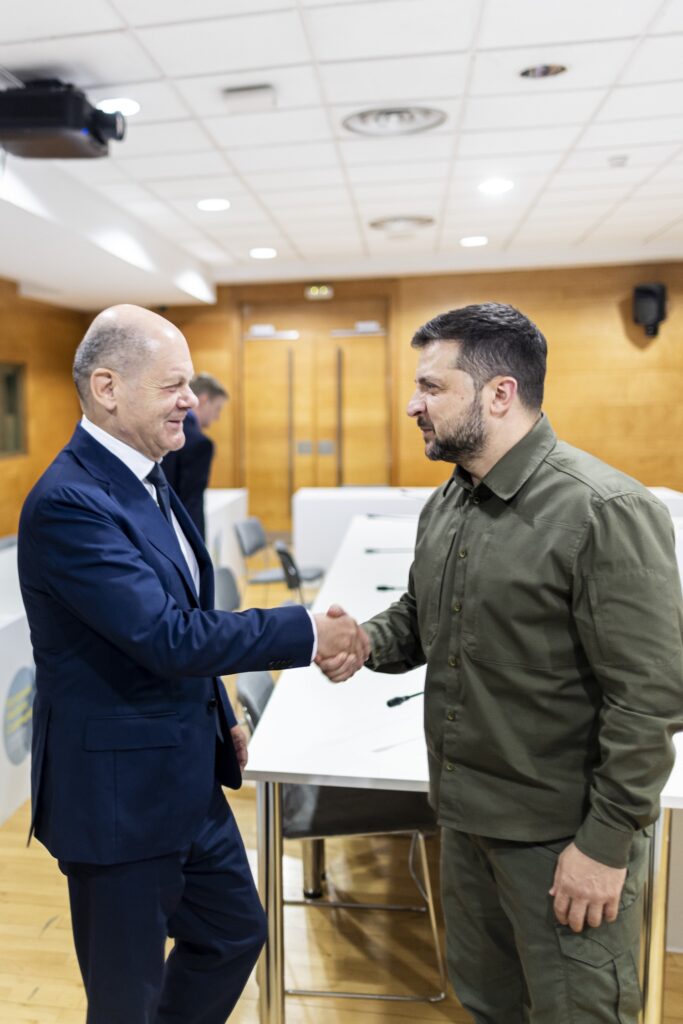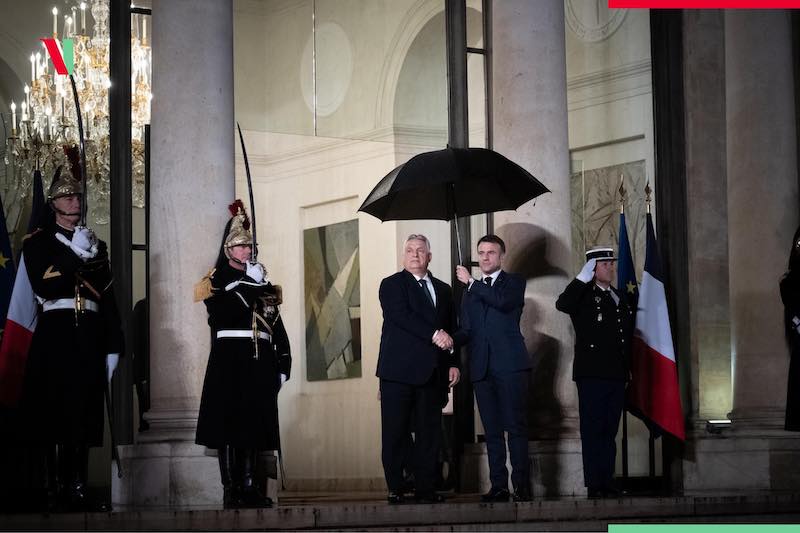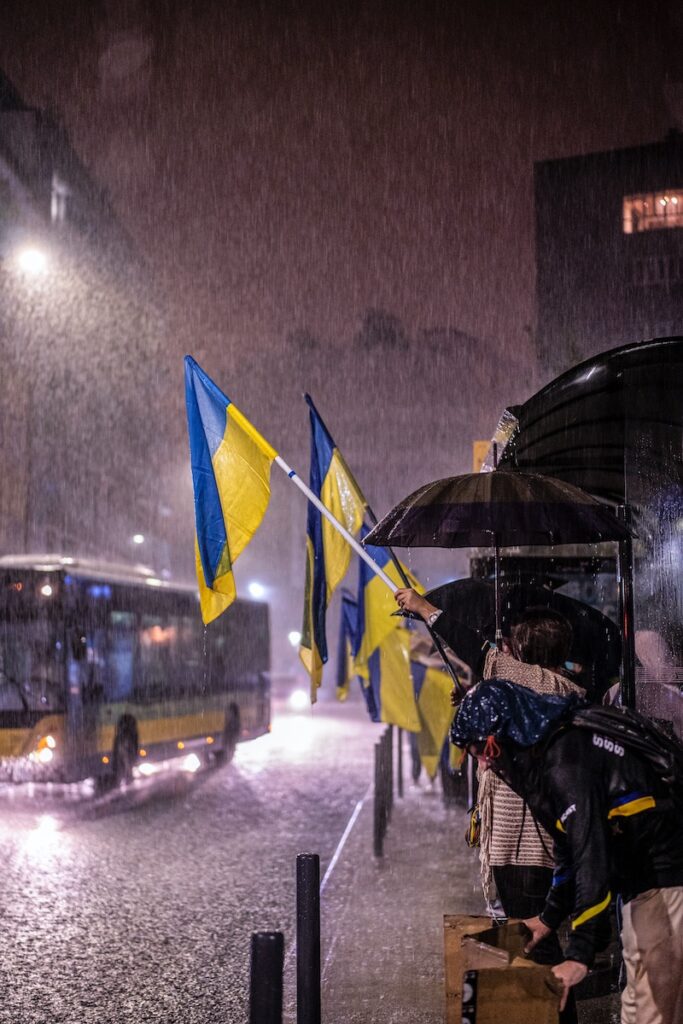What Pavlo Kazarin never lacked is the skill to find the right words at the right time. Born and raised in Crimea, he left his job as a radio host in the peninsula after the Russian annexation in 2014, and moved to Kyiv. In a few years, he became one of the country’s top columnists, combining a sober style with a bitter attitude, but still rooted in realism. In late 2021, he published an award-winning collection of essays, “Eastern Europe’s Wild West”, about his experience of living in the Ukrainian South, of foreign occupation, realising his Ukrainian identity and building a new life.
On the second day of the full-scale Russian invasion, Pavlo joined the Ukrainian armed forces. “This was a postponed necessity,” he explained. “I didn’t do it in 2014, and spent the time that was given to me by my compatriots who defended Ukraine, and got killed, on building a career [for myself] and various self-reflections. Now it’s my turn to give something back.”
He didn’t stop writing. When numerous Ukrainian businessmen and artists said they would not fight at the frontline, because they were defending the “economic” or “cultural” fronts, he wrote last July: “There is no other front than the real one.”
Now, as the counter-offensive has disappointed many and Western resolve to support Kyiv is wavering, the public mood in Ukraine seems grim. After almost two years of heavy fighting, most soldiers and civilians are exhausted. As a reaction to the challenges, political disputes have returned. Kazarin’s dry, realistic and well-informed perspective is timely, again.
“This winter might be harder than the last,” he wrote recently. “Now it’s not about missiles and electricity. We are entering [the season] with a smaller reserve of psychological resilience and greater collective fatigue. It may be easier to divide us. And there’s nothing worse than that, as this is how we all may lose.”

